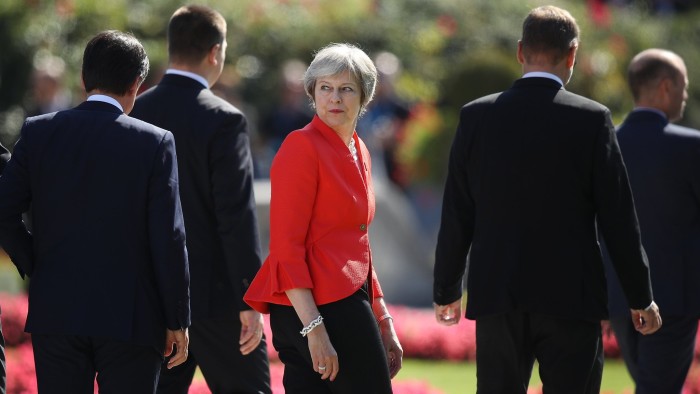Brexit is teaching Britain its true place in the world


In one sense, Boris Johnson is right. The Brexit process has indeed felt like a national humiliation. How many Brits have felt our innards shrivel at key moments of the negotiations? And I am not talking about the incidents of diplomatic bumbling, of unwarranted second world war references and Dad’s Army condescension. I am talking about the parts of this process that have gone as predicted.
Perhaps we should step back from the bloviated rhetoric. Humiliation is too strong; a national humbling is more accurate. The philosophy of Brexit was that, freed of EU constraints, the UK would take its rightful place in the world. This is indeed what is happening, but alas that place is not as the great power of their imagination. The UK’s place in the world is hardly terrible but, as Mr Johnson learnt during his brief but undistinguished term as foreign secretary, our emissaries no longer bestride summits like Castlereagh.
For far too long British politicians, journalists and voters have enjoyed a patently distorted vision of the nation as indispensable world player. Now the nation is facing the painful truth that the UK is not as pre-eminent as it has liked to believe.
For proof, look at the negotiations over the Irish border. One need not get into the rights and wrongs to see that the UK has essentially been pushed around by Ireland, because the EU has thrown its weight behind the demands of its continuing member. The hard fact is that the power imbalance has meant the UK is being forced to choose between the chaos of a no-deal Brexit or undermining the constitutional integrity of one of its four sovereign parts and signing up to a significant amount of rule-taking. This is what happens when a single country that is not America or China negotiates with a global trading bloc.
From the sequencing of the negotiations to the empty scorecard of British wins, the entire process has been a lesson in power politics. Few who saw the TV programme on America’s London embassy will forget the smirks as an US official described the British Brexit delusions: “They sort of see it as a negotiation between two equal parties.”
One should not overstate this. Britain is not Latvia. It still carries heft. It is a top 10 global economy (fifth, sixth or ninth depending on the market and your choice of methodology). It remains a military power, with a nuclear deterrent and a seat on the UN Security Council. It is the only European nation with access to US intelligence through the “five eyes” programme. Its pre-eminence as a financial centre will not immediately be dissipated by Brexit. The UK will still get its call, but after France and Germany and just before Canada. Life in the top 10 is different to life in the top three.
Much of the UK’s global clout derived from its being one of the big nations of the EU. Margaret Thatcher used that very platform to help create the single market, drive forward global trade and entrench democracy in eastern Europe. The 1970s champions of Britain’s membership were right in arguing that the alternative to pooled sovereignty was not more influence but less.
Now Britain is about to taste life as one of the loudest of the next level of voices. In this tier, maintaining influence beyond military matters, requires the painstaking unbombastic alliance-building that saw its existing political and diplomatic practitioners so derided as sell-outs by our chauvinistic MPs and media. It might, for example, mean expediting entry permits for Moldovan trade representatives so they do not delay the UK’s ambitions at the World Trade Organization.
And how will the UK’s status be reflected in its new trade deals? One has only to look at Donald Trump’s treatment of Canada to see that his negotiators will offer no special favours to the UK. Mr Trump is pro-Brexit because he wants to see a weakened EU, not to play benefactor to the UK. EU nations will be similarly cut-throat. Nor will sentimental attachments affect Commonwealth nations. Too many Brits fail to grasp that former colonies do not look back to the empire with unalloyed affection.
While this has all been understood by serious figures in government, too much of Britain’s politics, culture and its self-image have been driven by its colonial past and the national myths built up around the last war. It is why the Brexiters cling so desperately to the theory that Theresa May has betrayed Brexit. The alternative is to accept that it is their own reckless chauvinism that has reduced the UK to the role of supplicant with its former partners.
Adjusting to a reduced status will require a reality check in our media and our politics and a touch of humility. If Brexit helps the UK come to a more accurate realisation of its global significance, some good may yet come out of this wretched business. Still, it seems an expensive way to learn a lesson.
Letter in response to this column:
Shedding of imperial memories is overdue / From Adam Baillie, London N2, UK
Comments